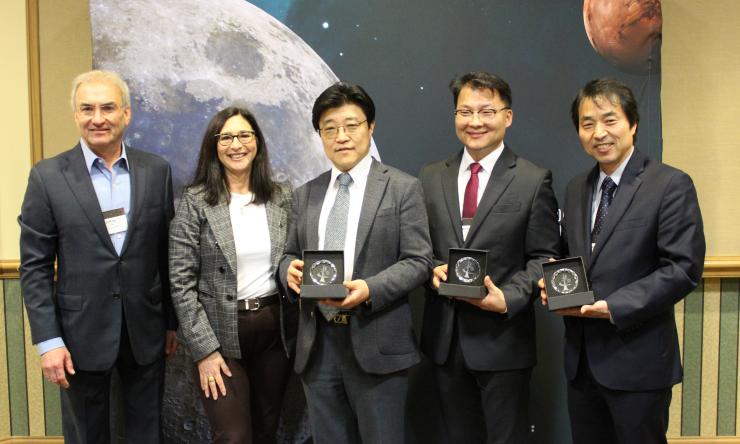Baylor, Korea NIH collaborate to further space health research
A new agreement between Baylor College of Medicine’s Center for Space Medicine and the Korea National Institute of Health (KNIH) will enable new international collaboration for scientific research and discovery in the field of space health.
“As in space, there should be no borders or boundaries to scientific discovery that benefits humankind,” said Dr. Dorit Donoviel, associate professor in the Center for Space Medicine at Baylor and executive director of the Translational Research Institute for Space Health. “With this agreement, we will work together with the KNIH to collaborate and foster meaningful discussion with the ambition of keeping humans healthy in space and on Earth.”
Astronauts and space travelers need practical solutions to protect them from the many health challenges of space exploration, such as how space travel impacts the body and mind. Through this international collaboration, researchers at both institutes will work across scientific disciplines, combine expertise and share data to increase the collective understanding of how the body endures challenges in space. Findings from this collaboration will lead to new health and performance protections and potentially lead to meaningful health advances for NASA’s upcoming crewed Artemis missions and benefit future commercial spaceflights.
“Korea National Institute of Health is honored to become a partner with TRISH, an institute of excellence in space health,” said Dr. Jung Ji-Won, director of the division of research planning at the KNIH. “In collaboration with TRISH, KNIH will make a first step of bold challenge and innovation for space health and medicine to strengthen research and development capacity and play a pivotal role in core research and technology development in Korea.”
The executed agreement is a Memorandum of Understanding (MOU). Both parties agreed to develop fruitful areas of cooperation for space health. Of specific interest are the mental health issues related to space travel, the challenges of food supply in deep space, the negative effects of space radiation and the need to develop advanced en-suite medical care for long-duration space travel. Further investigation in these areas could lead to enhancements on Earth: stronger behavioral healthcare, food supply enhancements, radiation protection and medical tools that can be deployed to help remote communities.
“I look forward to expanding possibilities in partnership with our colleagues in the Republic of Korea, which brings us closer to health solutions to help protect all future explorers,” Donoviel said.
Supported by the NASA Human Research Program, TRISH is an applied space health research catalyst that funds disruptive, high-impact scientific studies and technologies to equip astronauts for deep space exploration. Learn more about TRISH and its future funding opportunities by signing up for its monthly newsletter.










